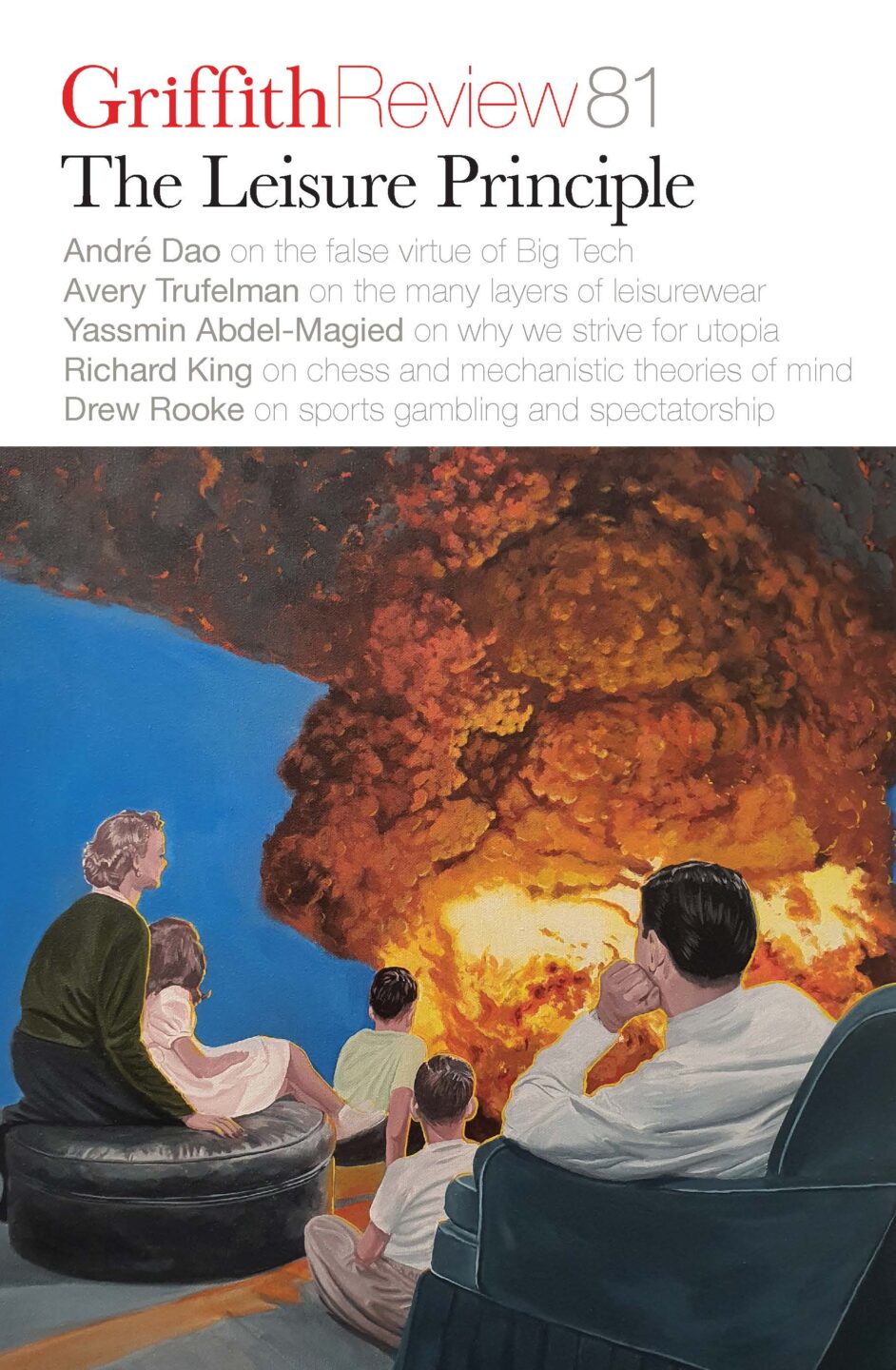Featured in

- Published 20230801
- ISBN: 978-1-922212-86-3
- Extent: 200pp
- Paperback (234 x 153mm), eBook


Already a subscriber? Sign in here
If you are an educator or student wishing to access content for study purposes please contact us at griffithreview@griffith.edu.au
Share article
About the author

Daniel Ray
Daniel Ray’s work has previously appeared in Westerly, Overland, Island, Cordite, Voiceworks and Cicerone Journal’s 2020 anthology, These Strange Outcrops. He is currently studying...
More from this edition

Women’s work
Non-fictionIn the 1990s, increasing fiscal and social rationalisation shifted responsibility for leisure from the state to the individual and from the public to the private sphere. Leisure studies, with its emphasis on providing research and data to inform leisure quality, accessibility and access, was rationalised to enhance the ‘bottom line’ of universities that were now attuned to the pragmatic desires of industry sectors.

Salted
FictionWe are absorbed in our work until we are not. Mostly we take breaks together, sitting outside in the sunshine waiting for our thoughts to settle, waiting for our lives to begin. Gus and I have both applied for the same scholarship. We’ll find out at the end of the month. Eve is organising a group show and wanted my latest painting as the centrepiece, but I won’t finish it in time, so I drop out. ‘I’ve got something ready,’ says Gus. Easy enough to find someone to fill my place.

History in Sid Meier’s Civilization VI
Poetry Because they spawn near each otherdiscover one another’s dog-scoutsSparta and Gandhi are contemporariesthe Eurotas river and the Gangesmuddying into the Indian Ocean, barbariantriremes appearing...